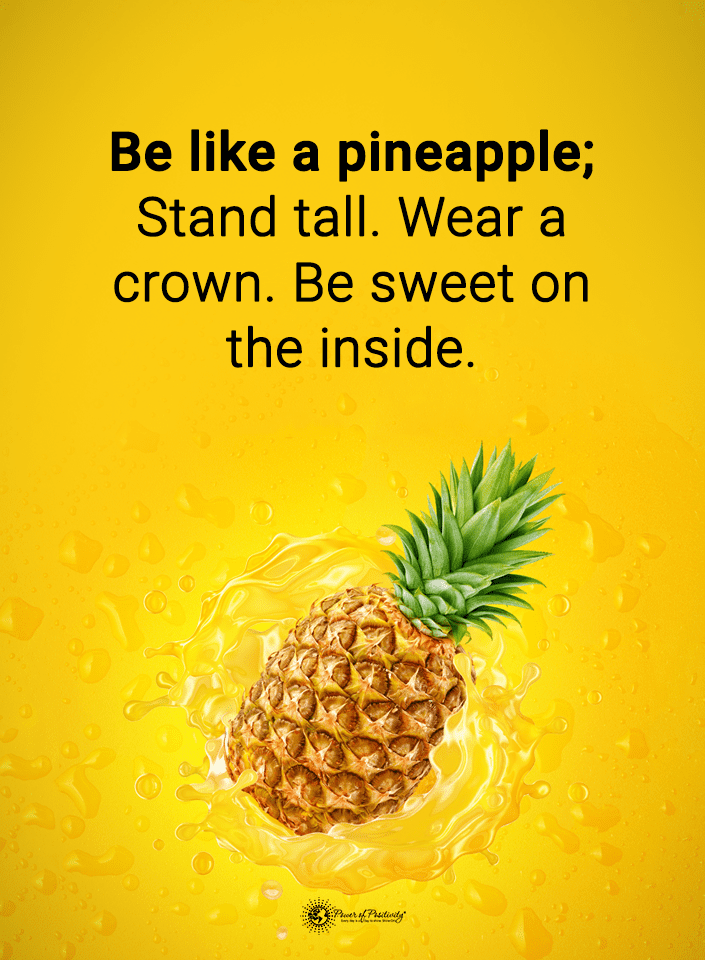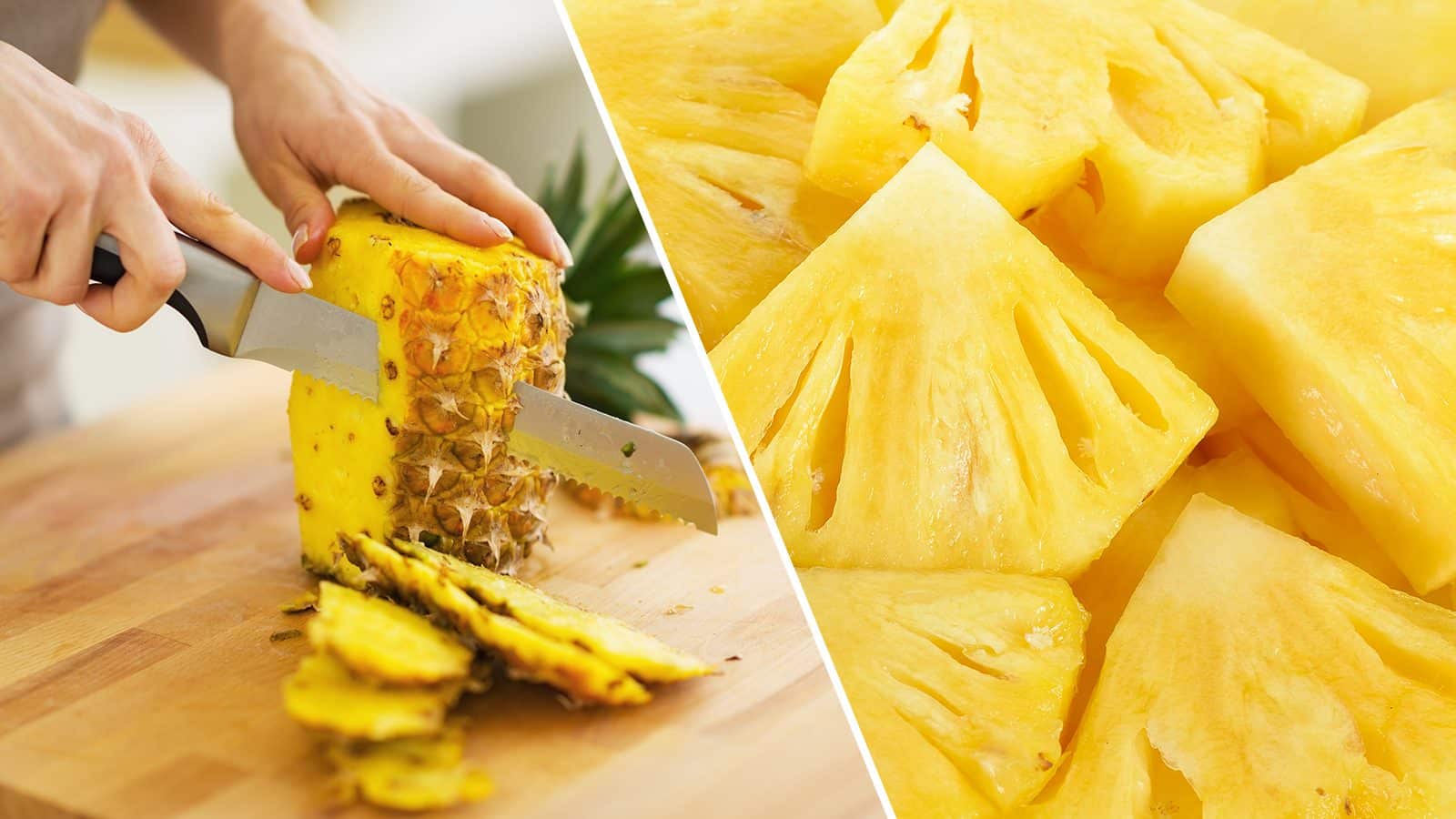Have you heard about the pineapple diet? Sadly, it joins a long list of popular rapid weight loss diets that promise excellent results. Fad diets like the pineapple diet claim you can lose weight quickly by simply eating one food, such as pineapple. Although these diets help you lose some weight during the first week, it’s usually water weight.
So if you have heard about the pineapple diet, this article explains why health experts say you shouldn’t try it.
What are examples of fad diets?
Fad diets come and go. Another rapid weight loss diet pops up every few years, promising quick weight loss with little effort. Unfortunately, some of these diets are not only strange, but they put your health at risk. Here is a list of the many fad diets throughout history.

- Grapefruit diet
- Cookie diet
- Liquid diet
- Blood type diet
- Cabbage soup diet
- Subway diet
- Raw food diet
- Special K diet
- Apple cider vinegar diet
- Alkaline diet
- Dukan diet
- Water diet
- Sacred Heart diet
- South Beach diet
- Scarsdale diet
Every one of these diets forbids certain foods and allows other foods. But, of course, no one can stay on a fad diet for too long due to the health risks.
What are the classic signs of a fad diet?
Fad diets like the pineapple diet make big promises with little results. Of course, you may drop ten pounds, but you’ll feel awful the entire time. Rapid weight loss diets are dangerous to your health. Here are the classic signs a diet is simply a fad, not a healthy weight loss diet.
- A fad diet promises quick weight loss: The diet may “guarantee” you lose weight. This promise is unethical and shameful because starving yourself is never appropriate.
- These diets claim you don’t need to exercise: The mantra of a fad diet is that you can lose weight without exercise. This false hope goes against conventional wisdom when it comes to weight loss.
- A fad diet restricts specific foods: These diets tell you to eat one or two foods while you’re on a diet, i.e., the pineapple diet, the rice diet, or the cottage cheese diet. Some fad diets limit you to one food group.
- Fad diets can be specialty foods: Fad diets often require special foods that are costly and hard to find.
Why don’t fad diets work?
Fad diets make big promises. But rapid weight loss rarely works long-term. Here are several reasons why fad diets like the pineapple diet don’t work long-term.
- You gain weight: You may lose some weight initially, but studies show that most dieters gain more weight once they go off the strict diet.
- You can get malnourished: Fad diets limit your foods and food groups. The lack of a variety of foods depletes your body of nutrients you need.
- You can get dehydrated: When you’re on a fad diet, you lose mostly water and very little fat.
- You get cravings: Rapid weight loss diets like the pineapple diet make you crave foods. Sometimes your desires are because your body craves nutrients.
- Fad diets create weird views on food: Quick weight loss diets cause you to view food as a reward or punishment instead of fuel for your body.
- Fad diets try to trick you: The folks who create these diets, like the pineapple diet, try to make you think that cutting out a particular food will make you lose weight. In reality, eating a balanced diet and getting enough exercise is the best way to stay healthy. If you hope to lose weight, you can exercise more or cut back on how much you eat.
- Fad diets can cause eating disorders: Restricting food can lead to compulsive behaviors such as bulimia or anorexia.
Pineapple facts
Pineapples are part of a plant family called bromeliads. They’re native to the Caribbean and Africa. Today, most pineapples are grown in Brazil or Costa Rica. Just one cup of fresh pineapple gives you a daily amount of vitamin C. Vitamin C, a potent antioxidant, fights free radical damage. Eating pineapple helps fight heart disease, certain cancers, and signs of aging. Pineapple is also high in these nutrients:
- Thiamin
- Manganese
- Folate
- Potassium
- Vitamin B6
- Iron
- Magnesium
- Copper
- Niacin
- Riboflavin
Besides those, this fruit is high in fiber, which helps you feel full and aids in elimination.
Why is the pineapple diet unhealthy?
The pineapple diet claims that you should eat only pineapple two days per week and then eat whatever you want for the remainder of the week. This eating pattern isn’t the healthiest choice for a diet. Studies show there negative health consequences of this kind of dietary pattern.
Besides this, too much bromelain has some health risks, including:
- Diarrhea, vomiting, and stomach ulcers
- Rapid heartbeat
- Heavy menstrual periods: Eating pineapple increases your blood flow. Because of this, it can lead to a heavier period than you would typically have.
- Risk of bleeding: Never overeat pineapple before surgery. That’s because the bromelain can result in bleeding.
- Heart problems
- Liver disease
- Kidney disease
- Drug interactions: Certain drugs don’t mix with bromelain. However, it interacts with antibiotics, blood thinners, cancer drugs, and NSAID pain relievers like Ibuprophen and aspirin.
The pineapple diet may trigger a reaction in some people who have allergies to celery, carrots, rye, wheat, certain pollens, bee venom, or latex. Eating only pineapple may cause you to lose some weight, but ultimately the weight won’t stay off.
The pineapple diet can cause too much Vitamin C in the body
Too much citric acid, or vitamin C, can cause the following harm:
- Irritation and sores in your mouth: Fresh pineapple can make your mouth burn or itch. This response happens because bromelain affects the tissue’s protein.
- Hives or trouble breathing: This common allergic reaction can occur with pineapple.
- Digestive problems: Too much pineapple leads to diarrhea, nausea, and vomiting.
- Heartburn: This is another digestive side effect of too much pineapple. Bromelain is (again) to blame.
- Gastroesophageal reflux disease or GERD: GERD occurs when you have too much stomach acid, and the bile flows into your esophagus, irritating the lining. Pineapple is very acidic and can lead to acid reflux.
- Hard on your tooth enamel: Fruits like lemons, grapefruit, and pineapples are highly acidic. This acid can make your teeth sensitive. In addition, the acid wears away the tooth enamel.
- Potential allergic reaction: Being on the pineapple diet could cause an allergy to pineapple.
Could the pineapple diet could cause kidney stones?
The pineapple diet focuses on eating one food rather than creating a healthy lifestyle. Kidney stone disease is associated with diets that cause chemical and physiological changes to your body. Diets like the pineapple diet can significantly affect your kidneys and result in kidney stone disease.
Why do people want to try the pineapple diet?
Like all fad diets, you might have thought about going on the pineapple diet for some quick weight loss. Maybe you’ve got a class reunion or a vacation, and you’d like to drop a few pounds. Losing weight is work. It’s tempting to try a quick weight loss method. Unfortunately, most people go on a fad diet because of social pressures to achieve a particular ideal body image rather than get healthy.
What is the healthiest way to lose weight?
Everyone wants to drop a few pounds here and there. Generally, people who lose weight gradually improve at keeping the weight off. Healthy weight loss is a lifestyle rather than a diet. Creating healthy eating patterns and regular physical exercise is the secret to losing weight and keeping it off. Here are some simple, healthy strategies for losing weight.
Create realistic goals
Aim to lose no more than one or two pounds a week. To achieve this, you need to burn at least 500 to 1,000 calories more than you eat daily. This happens by eating fewer calories and doing more exercise. Set a goal of losing no more than 5% of your current weight. So, if you weigh 140 pounds, your weight loss goal should be 7 pounds. Next, you write down your goals for how to achieve this goal. Once you reach that first milestone, set the next one.
Eat healthily
Creating a healthier lifestyle is better than dieting because it’s more realistic. Giving up foods or eating one food won’t isn’t doable long term. Aim to have a variety of foods. Eat at least
- Four servings of vegetables and three servings of fruits
- Avoid refined grains
- Cut out processed sugars
- Eat lean meats
- Eat healthy dairy foods
Be active
Try to exercise regularly every day for at least thirty minutes a day. Try exercises like these:
- Brisk walking
- Bike riding
- Swimming
- Running
- Dancing
- Yoga
Any movement will help you burn calories. Increase your physical activity even in small ways, such as
- Parking your car at the back of a parking lot
- Taking the steps instead of an elevator
- Walk to a coffee shop or the grocery
- Cleaning your house instead of hiring someone to clean it
- Mow your grass instead of getting a lawn service.
See food differently
Evaluate honestly any wrong thinking you have about food and eating.
Changing your view of food could be essential for you to lose weight. Avoid seeing food as a reward or punishment. Remember, food is to give you the energy you need to live a healthy, happy life.
Final thoughts on the pineapple diet; it’s just another fad diet
If you’ve heard of the pineapple diet, you will be disappointed to hear it is yet another fad diet. Rapid weight loss diets are trendy but rarely provide long-term weight loss. They make big claims, but the dangers of these diets outweigh any short-term benefits. Even though you may lose some weight eating just pineapple, it’s probably water weight. When you quit the fad diet, you’ll gain the weight back, plus more. The best way to lose weight is the change your lifestyle and your wrong thinking about food.



















